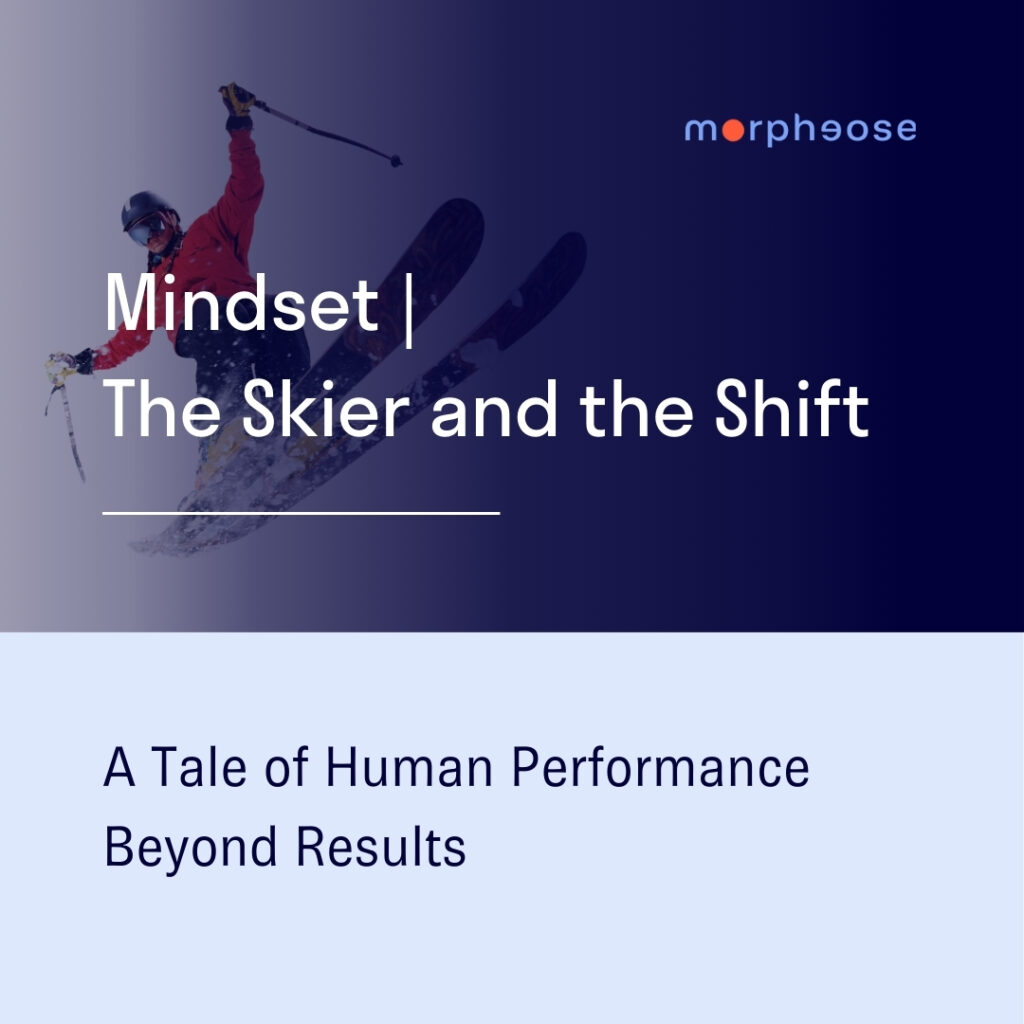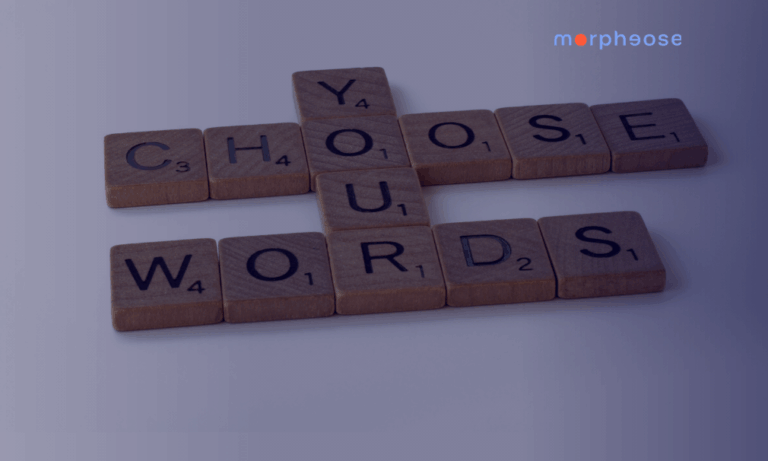
For two years, I’ve worked with Julian*, a young skier competing at the highest level—World Cups, European Championships. Two years of challenges, growth, plateaus, and breakthroughs. And two years of moving beyond the obsession with results toward something far deeper: evolution.
This week, during a regular catch-up call to assess his progress, I found our conversation so inspiring that I decided to share it. It did inspire me, it might inspire others.
I’ve spent much of my life in competitive environments—karate, high-level studies, management consulting. In those spaces, evolution was acknowledged, but only as a byproduct of achieving results. The underlying belief? If you have tangible, measurable results, then you must have evolved. It’s a logical conclusion, but one that overlooks something essential: evolution is not just external. It’s also deeply internal, a shift in how we perceive ourselves and the process we go through.
The Coaching Process: No Magic Wand, Just Deep Work
When we started working together, Julian, like many high performers, was looking for ways to optimize his mindset. Some individuals seek instant results—a magic wand, a “fix-it-all” solution. That’s not how real change works. Instead, we engaged in a process of refinement, exploration, and integration, using hypnosis as a core tool from the very beginning.
Over these two years, our work took place across multiple races, training blocks, and moments of reflection. We tested, adapted, and fine-tuned techniques based on his needs and experiences. Hypnosis quickly became second nature for him—he learned to enter trance states efficiently, making each session deeply productive.
- Visualization & repetition, embedding precise mental rehearsal into his training.
- Lifetime projections, helping him see himself beyond the immediate competitive cycle.
- Personification techniques, using an “unconscious referee” to challenge and refine his inner dialogue.
- Values and intrinsic motivation, uncovering what truly drives him beyond podiums and rankings.
- Systemic exploration, understanding his relational dynamics—how his family, teammates, and mentors influenced his mental landscape.
Today, I can confidently say that he has become proficient—far more than I am—in crafting and refining his own introspective rituals for competition and mental maintenance. He has also become an avid writer, journaling every single day, creating an honest and evolving account of his thoughts, perceptions, and emotions.
“I Can’t Allow Myself to Win”
Julian is 23 years old. He is a world-class skier, consistently making finals, training harder than most, refining his technique, pushing his limits. But he wasn’t getting the podiums he aimed for.
One day, after yet another strong yet imperfect performance, he reflected:
“It’s as if I can’t allow myself to win… I can’t explain it. I feel good on the slopes, but I constantly ruin the first try.”
I had known him long enough to recognize a pattern.
“You thrive when there’s no pressure. Failing the first try means the second one is free of expectations—and then you land it perfectly.”
He agreed.
“Yeah… it actually sounds right. Like I sabotage myself.”
“I don’t think you sabotage yourself. This is just how you’ve succeeded before—it’s a strategy that has worked so far. But let’s dig deeper. You know you’re a great skier. You train harder than anyone. And I know you value honesty and effort—you dislike nepotism in national selections, and you’re OK with losing if the other athlete is simply better. So, do you have confidence in your abilities?”
“Yeah, I do… and it feels good to hear you remind me how much I worked.”
“So maybe this isn’t about self-sabotage at all. Maybe it’s about a shift. I might be reaching, so correct me if I’m wrong: You know you’re good, but putting yourself out there as ‘the best’ conflicts with something inside you. It’s as if succeeding too much, too obviously, would betray an untold value. How does that sound?”
He chuckled.
“This sounds too true. I feel superior to what I was last year—sorry to say it- and even to many in the circuit.”
The way he immediately said sorry after praising his objective progress sparked my interest.
“Why ‘sorry’? You are superior to your past self—objectively. And given your efforts, sometimes, you may be better than others. You’re in the World Cup and often near the podium. Drop the ‘sorry’ and refine your perception.”
The Hidden Value That Held Him Back
It turns out that the value Julian had been protecting all along was humility.
Since childhood, he had internalized the idea that standing out was bad, that true excellence was discreet. He gave examples from when he was 5, 6, 7 years old—moments where he had judged arrogance as something negative. “Never talk, disappear.” The Swiss have a saying: vivons heureux, vivons cachés—live happily, live hidden.
What he was experiencing was not sabotage. It was a redefinition of self.
He was maturing, shifting from rigid values toward a more nuanced perspective. In his mind, success had been a polarity: humility vs. arrogance. Now, he was carving out a third space: confidence.
Not arrogance. Not ego. But a fact-based, embodied trust in his own ability.
A confidence that didn’t require external validation. A self-assurance that didn’t depend on hiding or diminishing himself.
Making Peace With Performance
Julian’s journey was about reconciling two forces that exist in all high achievers:
- The positive stress from conscious goals, expected results, and external objectives.
- The bodily, visceral, personal feeling of success and satisfaction—one that exists beyond results.
When those two align, performance becomes effortless.
His last words before we ended that session?
“I’m above who I was last year. And I see the results.”
The Takeaway for All of Us
Julian is an athlete, but his story is universal.
- How often do we feel we “can’t allow” ourselves to succeed?
- How many times do we hold onto beliefs that once served us but now constrain us?
- How many times, in the contrary, do we partake in actions against our values?
- How often do we mistake evolution for sabotage?
Change is not just about strategy or effort. It’s about reperceiving what is possible.
I have long been fascinated by the way deep, introspective work—including hypnosis—can bring clarity to these untold conflicts. It’s a process of understanding, reframing, and integrating. And every day, I wake up more passionate, working with those who want to explore these internal shifts, whether in sports, corporations, leadership, or personal growth.
Because in the end, real success is not about results—it’s about who you become.
* names have been changed for privacy reasons
To Learn More: The Coaching Process | No Magic Wand, Just Deep Work
When we started working together, Julian, like many high performers, was looking for ways to optimize his mindset. Some individuals seek instant results—a magic wand, a “fix-it-all” solution. That’s not how real change works. Instead, we engaged in a process of refinement, exploration, and integration, using hypnosis as a core tool from the very beginning.
Over these two years, our work took place across multiple races, training blocks, and moments of reflection. We tested, adapted, and fine-tuned techniques based on his needs and experiences. Hypnosis quickly became second nature for him—he learned to enter trance states efficiently, making each session deeply productive.
We explored:
- Visualization & repetition, embedding precise mental rehearsal into his training.
- Lifetime projections, helping him see himself beyond the immediate competitive cycle.
- Personification techniques, using an “unconscious referee” to challenge and refine his inner dialogue.
- Values and intrinsic motivation, uncovering what truly drives him beyond podiums and rankings.
- Systemic exploration, understanding his relational dynamics—how his family, teammates, and mentors influenced his mental landscape.
Today, I can confidently say that he has become proficient—far more than I am—in crafting and refining his own introspective rituals for competition and mental maintenance. He has also become an avid writer, journaling every single day, creating an honest and evolving account of his thoughts, perceptions, and emotions.
by
Mourad Chouaki
Former physicist and political scientist, ex-BCG consultant, sportsman and living being fascinated by consciousness and mythico-ritual approaches.


